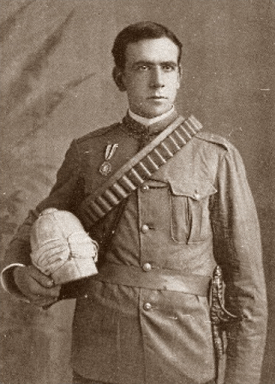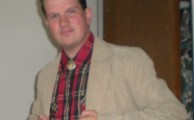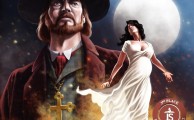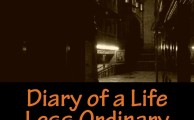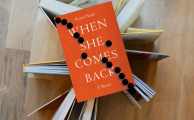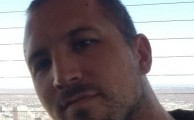Adrian Musgrave Interview
The Indie Book Butler Interview – Adrian Musgrave
Tell us a little about yourself and your work.
Following nine years service in the RAF, I qualified as a teacher and spent several years as a freelance teacher/trainer before setting up an internet service business.
We sold this business in 2004 at which time me and my wife semi-retired, bought a property in Bulgaria and travelled around Europe, coming back to the UK in 2010.
 A year or so before we returned, my granddaughter had taken up an interest in genealogy and had constructed a family tree, revealing my great-uncle, George Clarke Musgrave. I worked with her on this and with relatively straightforward first stage research, we discovered that George Clarke was a war correspondent and journalist, seeing action with both British and American forces in West Africa, Cuba, South Africa, China, the Balkans and France. His articles from these conflicts were published in many national and international journals including: the Illustrated London News, the London Chronicle, the Daily Mail, Strand Magazine, Black and White Review and the New York Times. He also wrote a number of books which were readily published and well received by audiences on both sides of the Atlantic. Unfortunately, these are now out of print and first editions are rare and expensive.
A year or so before we returned, my granddaughter had taken up an interest in genealogy and had constructed a family tree, revealing my great-uncle, George Clarke Musgrave. I worked with her on this and with relatively straightforward first stage research, we discovered that George Clarke was a war correspondent and journalist, seeing action with both British and American forces in West Africa, Cuba, South Africa, China, the Balkans and France. His articles from these conflicts were published in many national and international journals including: the Illustrated London News, the London Chronicle, the Daily Mail, Strand Magazine, Black and White Review and the New York Times. He also wrote a number of books which were readily published and well received by audiences on both sides of the Atlantic. Unfortunately, these are now out of print and first editions are rare and expensive.
I believe, though, that his words should be read and, in seeking to bring his library back to life, I have written authentic new versions of his six books with a particular focus on preserving the action, the excitement, the drama and the emotion of his original narrative. These now form a series with the title of “Wars and Words”, within which I have also sought to knit together the diverse and tangled threads of George Clarke Musgrave’s career which spanned some twenty-five years in which he grew from a raw but determined twenty-one-year-old neophyte of the media circus to a seasoned, brilliantly analytical and highly respected observer of war.
You’ve got one sentence to sell us on your work. Tempt us.
Share with me the raw brutality, the traumas and the evils of war and my undying admiration for the men and women who have lived and loved, suffered and triumphed in its fighting
Were there any particular parts of the writing/publishing process that you struggled with?
My work hovers somewhere between biography, adventure, genealogy and military history and I did experience some difficulties in maintaining an appropriate focus in my writing. I think, however, that by sticking to a first person narrative throughout the series, I have managed to maintain consistency and, I hope, readability
Where do you like to write?
At home. I have a little niche in our living room with my computer, a storage unit for my books and notes – and a very supportive wife
Is there anything you must have in order to write?
My research notes, my computer, lots of tea and the “word pictures” that I paint in my mind
What books have influenced you most, both as a person and as an author?
 All of George Clarke Musgrave’s books together with several related works on military history and genealogy. I have also studied many journals, auto-biographies and biographies written by or about some of the key people with whom George Clarke Musgrave was involved. This is a long list but Includes: Prince Henry of Battenberg, Sir Francis Scott, Lord Roberts, Lord Wolsley, Baden-Powell, General Buller, Winston Churchill, General Garcia, leader of the Cuban insurgents and President Theodore “Teddy” Roosevelt, Colonel of the Rough Riders in the Spanish-American war in 1898, with whom he developed a life-long friendship.
All of George Clarke Musgrave’s books together with several related works on military history and genealogy. I have also studied many journals, auto-biographies and biographies written by or about some of the key people with whom George Clarke Musgrave was involved. This is a long list but Includes: Prince Henry of Battenberg, Sir Francis Scott, Lord Roberts, Lord Wolsley, Baden-Powell, General Buller, Winston Churchill, General Garcia, leader of the Cuban insurgents and President Theodore “Teddy” Roosevelt, Colonel of the Rough Riders in the Spanish-American war in 1898, with whom he developed a life-long friendship.
What is the one thing that has helped you develop most as an author?
I did not know my great-uncle, George Clarke Musgrave but, for more than a decade now, I have lived with him, walked with him and dreamed with him. He died in 1932 gone and his going has left the sad reality that he can no longer recount his life and times in person. That task has slipped several branches down the family tree to me and it is with some trepidation, and a keen desire to keep true to his memory, that I have dedicated myself to channelling his stories and rebuilding his library
What do you want to achieve most from your writing?
Copies of George Clarke Musgrave’s books that are available have been covered as separate works by various publishers in a range of scanned and reprinted formats but these often disappoint in terms of quality and consistency. In bringing my great-uncle’s library back to life, what I am trying to achieve is a unified platform where all of his books, diaries and essays are available to as wide an audience as possible. This platform includes the books, two websites that I have built and a continuing stream of information on social media
Is there something specific you do to improve your writing?
Research comes first and then I build a timeline for the particular event or period that I am covering. This gives me a framework which I develop by adding in the details layer by layer.
If you had a direct line to someone who loves or hates your writing, what would you say?
Feedback from all readers is important so I would ask the same question in either case. Love my writing or hate it, what is it that makes you feel this way?
If you could give one piece of advice to an aspiring author, what would it be?
Believe in your work, believe in yourself, ignore the self-doubt and keep going
What does your writing future hold for you?
In addition to his books, George Clarke Musgrave produced a wide-ranging portfolio of articles, reports, letters and essays on many subjects. He also kept diaries with records of his day-to-day experiences. Unfortunately, many of these have been lost, damaged or destroyed and there is no longer a complete collection available. From those that do remain, though, I am editing and compiling his notes into dated records that will form the content of further books in the “Wars and Words” series. This is a work in progress.
How have you set about the task of creating enticing cover art?
 I just try to capture the essence of the book in a simple image. For me, the words inside a book are more important than the cover
I just try to capture the essence of the book in a simple image. For me, the words inside a book are more important than the cover
How often do you read? What genre?
Pretty much every day. Mainly military and social history. I also read quite a lot of indie books with broadly similar subject matter and I spend a lot of time searching out archived material in newspaper collections and online libraries.
Thanks for taking the time to answer our questions. Best of luck in the future.
For more on Adrian’s work, please do visit:
Wars and Words
George Clarke Musgrave
Library on Amazon
Kindle Unlimited
Amazon Prime







